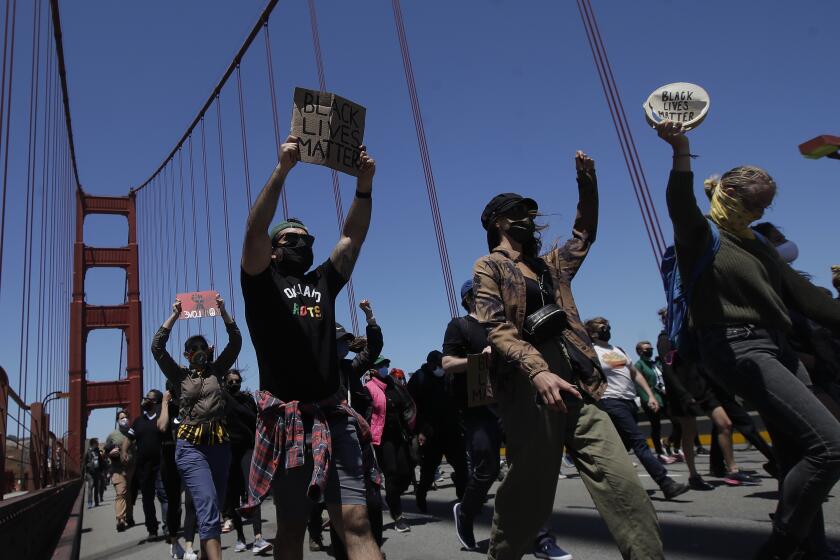When Jessica Cooper moved back to the L.A. area from Washington, D.C., and got a job at the Santa Monica tech company PatientPop, she was shocked at how white the company — and the company’s leadership — was.
At the Federal Communications Commission, where she had worked in IT, Cooper said, she never felt isolated in her workplace. “Now that I’ve come back home, and working in the tech industry specifically,” Cooper said, “the higher up the ladder you look, you don’t see a lot of women, and you mostly see white males.” On her team, she’s the only Black woman out of 25 employees. The company’s C-suite consists of four white men and one white woman, and the broader leadership includes just one Black executive.
Starting in the summer of 2019, she and her co-workers formed a group to advocate for more diversity and inclusion at the company. She’s grateful that the company has let them do that work on company time, but the last six months had been frustrating, she said.
“I was hopeful at that time,” when she started the group, she said, “but between that time and when the world changed as we know it, there was this frustration, because as much as we felt like we’re fighting for change it seems like business was really prioritized over that.”
“For people who don’t see a need for this, they’re like, ‘No, let’s just keep making money,’” she added. “The wheels are oiled, so let’s keep going.”
But things are beginning to change. After the killing of Floyd and the spread of protests around the country, she’s been pleasantly surprised to see the reaction from her company’s C-suite. Although they were a little slow to move at first, she said, they’ve been working with employees like her to actively hammer out new processes and policies.
The company, which provides online services to medical practices, has seen a decrease in revenue from the COVID-19 crisis, and announced layoffs in early April. That’s put a damper on the potential for change, Cooper said, and has made her group’s core demand of hiring a full-time diversity-and-inclusion executive unlikely to succeed. But the company has been willing to move on a number of changes, such as allowing staff to observe a wider range of significant holidays, and broadening the company’s policy against discrimination and harassment to extend beyond working hours to all interactions between employees.
“We realize we’re in a recession, and COVID is still going on,” Cooper said. “But I’m trying to seize the opportunity to get as much accomplished as possible.”
----
Google, Pinterest and Snap all declined to comment on the accounts offered here by former employees.







